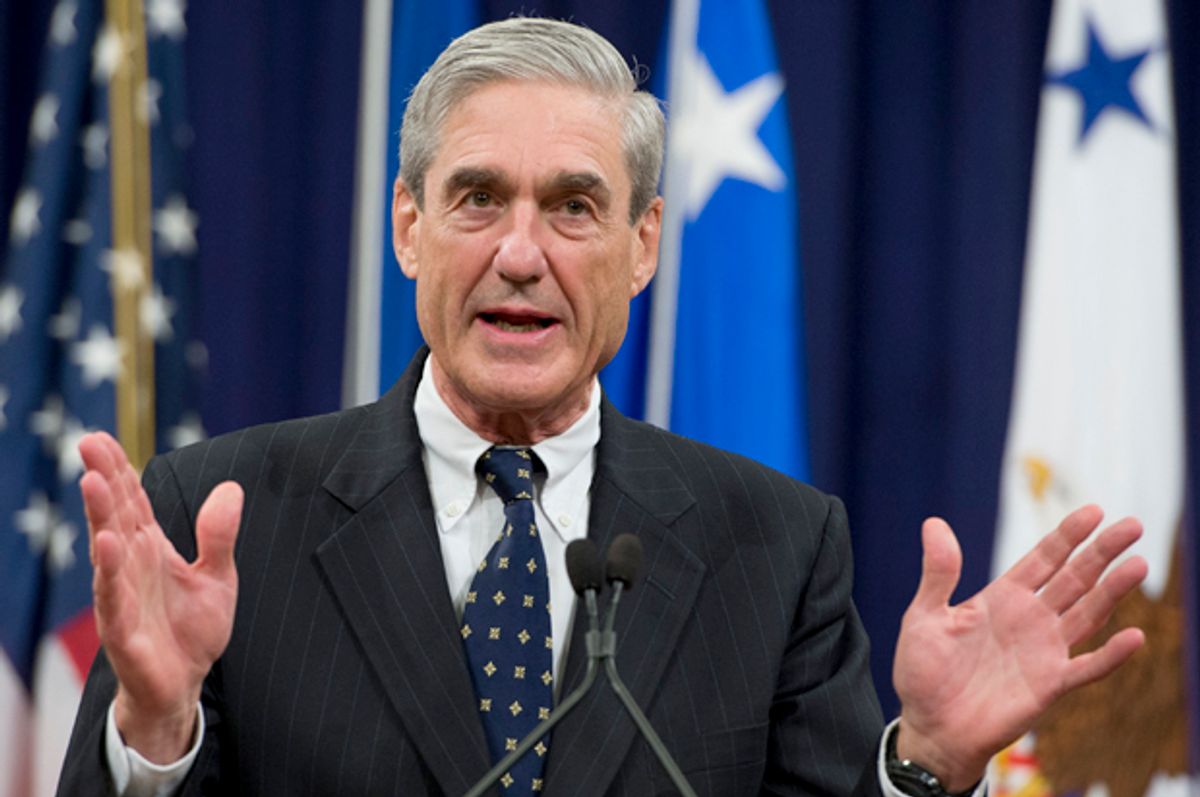A new report suggests that President Donald Trump is not above firing special counsel Robert Mueller III — or at least leaving open the possibility that he could do so — in order to put a stop to the investigation into his campaign's alleged collusion with the Russian government.
Trump purposely didn't answer a question by reporters on Tuesday about whether he supported Mueller, a choice that one source who spoke to the president said was made so that the pressure from being possibly fired would convince Mueller to publicly exonerate him, according to a report by The New York Times. The Times also reported that Trump seriously considered firing Mueller but was dissuaded by his staff, who believed that firing Mueller would have catastrophic political consequences.
That said, Trump still clearly believes that he would be fully within his rights to fire Mueller. As White House spokeswoman Sarah Huckabee Sanders told reporters on Tuesday, "the president has every right to" fire the special counsel, even though he currently doesn't plan on doing so.
Deputy Attorney General Rod J. Rosenstein, who would have to fire Mueller if Trump made that decision, told a Senate committee on Tuesday that he would not do so "without good cause."
He added, "I’m not going to follow any orders unless I believe those are lawful and appropriate orders."
If Trump ordered Rosenstein to fire Mueller, it would immediately call to mind the Saturday Night Massacre, an incident in 1973 during which President Richard Nixon ordered the firing of special prosecutor Archibald Cox due to his pursuit of the Watergate investigation. Both Attorney General Elliot Richardson and Deputy Attorney General William Ruckelshaus resigned in protest rather than carry out Nixon's order, with Solicitor General Robert Bork ultimately carrying out that task.



Shares